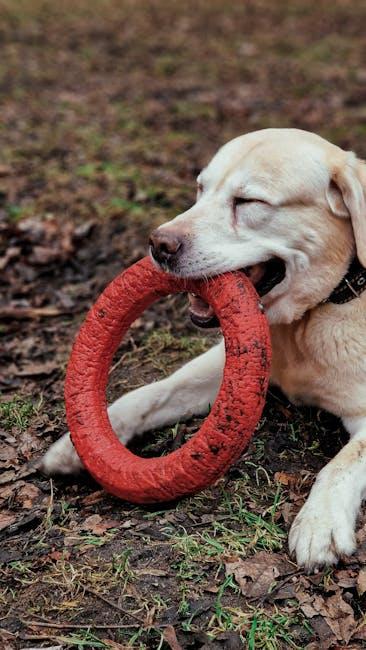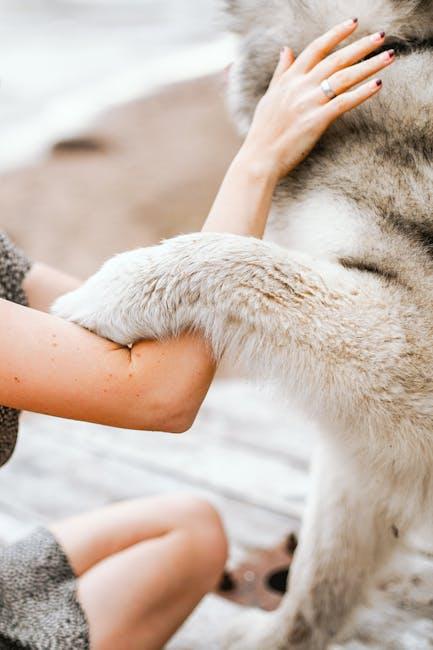The Role of Genetics in a Dog’s Personality and Behavior

Dogs have long been cherished as loyal companions and beloved members of our families, each with their own unique quirks and characteristics. From the playful antics of a sprightly Labrador to the calm demeanor of a gentle Great Dane, the diversity in dog personalities is as vast as the breeds themselves. But what shapes these distinct behaviors and temperaments? While environment and upbringing certainly play crucial roles, an often-overlooked factor is the genetic makeup of our furry friends. In this article, we delve into the fascinating world of canine genetics, exploring how inherited traits influence a dog’s personality and behavior. By understanding the genetic factors at play, pet owners and enthusiasts can gain deeper insights into their dogs’ actions and better cater to their needs, enhancing the bond between humans and their four-legged companions. Join us as we uncover the science behind the wagging tails and soulful eyes, revealing the genetic blueprint that helps define who our dogs are.
Understanding the Genetic Foundations of Canine Temperament
In recent years, scientists have delved into the fascinating world of canine genetics to unravel the mysteries behind their diverse temperaments. At the core, genetics play a pivotal role in shaping a dog’s personality, influencing traits such as aggression, sociability, and trainability. By examining the genetic makeup of different breeds, researchers have identified specific genes that contribute to these behavioral characteristics. This understanding not only sheds light on why some breeds are more prone to certain behaviors but also helps in guiding responsible breeding practices.
- Aggression: Often linked to genes associated with fear responses and territorial instincts.
- Sociability: Tied to genes influencing friendliness and social bonding.
- Trainability: Connected to genes affecting intelligence and adaptability.
While genetics lay the groundwork, it’s essential to recognize that environment and upbringing also play crucial roles in a dog’s overall behavior. Early socialization and positive training experiences can significantly shape how genetic predispositions manifest in adult dogs. Therefore, understanding the genetic foundations provides a valuable framework for both breeders and pet owners to nurture well-rounded, happy dogs.

Exploring the Influence of Breeding on Dog Behavior
When considering the complex tapestry of a dog’s personality, genetics plays a crucial role. It’s fascinating to note how certain breeds have been shaped over generations to accentuate specific traits, resulting in unique behavioral patterns. For instance, herding dogs such as Border Collies are known for their exceptional intelligence and drive to work, a characteristic honed by selective breeding. Similarly, the amiable and gentle nature of the Labrador Retriever can be traced back to their lineage, bred to be sociable companions and efficient working dogs. These inherited traits are not just coincidental but are deeply embedded in their genetic makeup, influencing how they interact with the world around them.
Beyond these breed-specific characteristics, genetics can also influence a dog’s susceptibility to certain behavioral issues. Some dogs may have a genetic predisposition to anxiety, while others might exhibit dominant or territorial behaviors. These tendencies can often be observed in breeds known for their protective instincts, such as German Shepherds. While training and environment certainly play significant roles in shaping a dog’s behavior, understanding the genetic blueprint can provide invaluable insights. This knowledge empowers owners to tailor their training methods and environmental enrichment, ensuring that each dog’s unique genetic potential is nurtured and celebrated.
- Intelligence: Certain breeds are predisposed to higher cognitive abilities.
- Sociability: Breeds like Retrievers often have an innate friendliness.
- Anxiety: Some breeds may be more prone to nervousness.
- Protectiveness: Genetic traits can lead to strong territorial instincts.

Nurture Meets Nature: Balancing Genetics with Environment
When considering the intricate tapestry of a dog’s personality, it becomes clear that both genetics and environment play significant roles. Genetic predispositions often lay the groundwork for certain behavioral traits. For instance, a Border Collie might naturally exhibit herding instincts, while a Labrador Retriever could show an innate love for water. However, these inherent tendencies are just one part of the equation.
Environmental factors can dramatically influence how these genetic traits manifest. Here are a few key elements that can shape a dog’s behavior:
- Socialization: Early exposure to different environments, people, and other animals can help a dog develop confidence and adaptability.
- Training: Consistent and positive reinforcement techniques can modify or enhance certain genetic behaviors.
- Nutrition and Health: A balanced diet and regular veterinary care ensure that a dog’s physical needs support its genetic potential.
By understanding the delicate dance between a dog’s genetic makeup and its environment, pet owners can better nurture their furry companions, fostering well-rounded and happy pets.

Practical Tips for Choosing a Breed Based on Personality Traits
When selecting a dog breed, it’s essential to consider how genetics influence personality traits. Different breeds have been historically developed for specific tasks, which in turn shape their behavior and temperament. For example, herding breeds like Border Collies are known for their intelligence and energy, making them great companions for active families. On the other hand, a Basset Hound might be more suited for a laid-back owner due to its calm and gentle nature.
- Energy Levels: Consider whether you want a high-energy dog that requires plenty of exercise or a more relaxed breed that enjoys lounging around.
- Trainability: Some breeds are more receptive to training due to their eagerness to please, while others may require a bit more patience.
- Social Needs: Think about how much interaction your dog will need with people or other animals. Breeds like Labradors tend to be very social, whereas others might be more independent.
- Temperament: Consider whether you want a protective breed, like a German Shepherd, or a more friendly and outgoing one, like a Golden Retriever.
By matching a dog’s innate personality traits with your lifestyle and preferences, you can find a breed that not only fits into your home but also enriches your life. Remember, while genetics play a significant role, individual dogs can vary, and nurturing their unique personality is key to a happy companionship.



